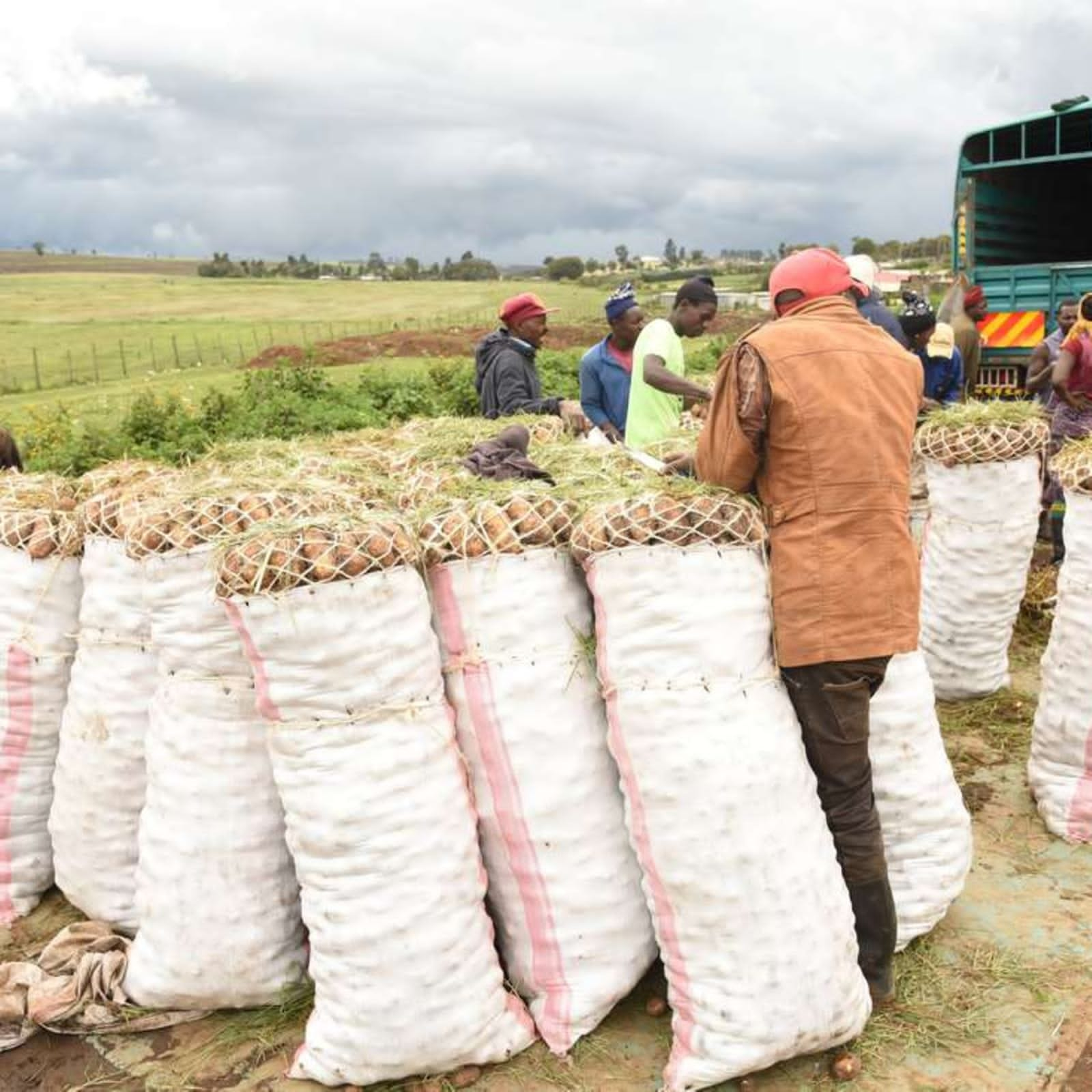Authority steps up potato packaging compliance to curb farmer exploitation
ESTHER MWANGI-KNA
The Agriculture and Food Authority (AFA) has launched a crack down on traders violating the 50-kilogram rule in packaging Irish potatoes, as the government continues to enforce the 2021 Potato Regulations.
The agriculture regulator announced it has trained 254 crop inspectors to sup port this effort and ensure compliance with Chapter 16 of the Crops Act, which bans the packaging of potatoes in extended bags.
AFA Crop Inspectorate Director Mr. Ferdinand Masinde stated that the crackdown aims to enforce the standard 50-kilogram packaging rule through out the potato value chain, from farms to markets.
Masinde added that AFA is ensuring all Irish potato transporters are registered, each bag weighs exactly 50 kilograms, and that all storage units and warehouses are certified to maintain high standards across the value chain.
Masinde explained that AFA had sensitized stake holders on these regulations and expects full compliance from value chain players. He emphasized the need to reverse past practices where potatoes were often sold in 110-kilogram bags, causing significant losses for farmers.
Efforts to standardize potato packaging predate the formation of AFA, originating with bylaws adopted by defunct municipal and county councils under Le gal Notice No. 113 of 2008. These bylaws, based on the 2005 standardization pol icy, introduced a Sh2,000 fine or a prison term not exceeding six months for non-compliance.
They also required market officials to block the sale of produce in extended bags. Speaking at a meeting with agricultural experts from Nakuru, Meru, Nyandarua, Narok, Nandi, and Nairobi Counties, the Director noted that inspectors would oversee production, weighing, handling, and processing of potato produce to ensure adherence to regulations.
The law also covers 20 other types of produce, including legumes, cereals, roots, and tubers. AFA’s announcement comes as potato-growing counties work to enforce regulations crafted to protect farmers from exploitation.
The authority is responsible for appointing inspectors to ensure all stakeholders comply with potato-related guidelines.
Masinde explained that the law permits inspectors in potato-growing counties to seize and detain Irish potatoes packaged or trans ported in a non-compliant manner, at the offender’s expense.
“We know brokers have exploited this industry, and we’re here to safeguard farmers’ interests and ensure they receive fair re turns,” he said.
Nakuru County Executive Committee Member (CECM) for Agriculture, Livestock, and Fisheries, Mr. Leonard Bor, indicated that agriculture officers have been educating farm ers on potato packaging regulations through public meetings, field days, and exhibitions. The county government, in partnership with Egerton University, the National Potato Council of Kenya (NPCK), and the Kenya Agricultural and Livestock Research Organization (KALRO), is working to help potato farmers reduce production costs and in crease their incomes.
According to Mr. Bor, this partnership aligns with climate-smart innovations aimed at protecting farmers from challenges such as drought, floods, diseases, and pests. He explained that the initiative seeks to pro mote sustainable potato production through climate-smart farming practices, good agricultural practices (GAP), certified seeds, and advanced agricultural technologies.
Bor stated that Nakuru County is supporting efforts to expand the avail ability of certified potato seeds to increase food production and enhance food security. Through public-private partnerships, the county government aims to raise the supply of high-quality certified potato seeds by 25 per cent, utilizing rapid multiplication, increased seed bulking, and training for commercial seed growers in the county.
The Agricultural Development Corporation’s (ADC) seed development project in Nakuru’s Molo Sub-County serves as the primary hub for potato seed production, storage, and distribution, supplemented by KALRO’s potato research in Tigoni, Kiambu County.
National Potato Council of Kenya (NPCK) CEO Wachira Kaguongo stated that, over the past three years, an inconsistent seed supply has impacted potato production, which is regulated under the Crops Act of 2013.

